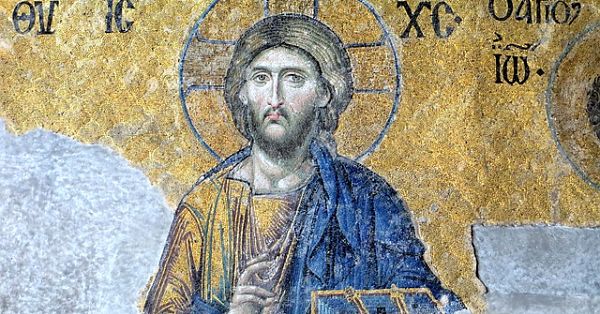Incarnation is a big word, and sadly, not a lot of Christians either use it, or know what it means. It does not refer to the same thing as the virginal conception, though the latter is the means by which the incarnation of the Son of God took place. Incarnation refers to the choices and acts of a pre-existent divine being, namely the Son of God, that the Son took in order to become a human being. He took on flesh, and became fully, truly human without ceasing to be fully, truly divine. Divinity is not something Jesus acquired later in life, or even after his death and resurrection. According to the theology of Incarnation he had always been the divine Son of God, even before he became Jesus, a human being. Strictly speaking the name Jesus only applies to a human being. It is the name the Son of God acquired once he became a human being in the womb of Mary, a name which he maintains to this day as he continues to be a human being. We could continue to go down this track, and it would be like going down the rabbit hole with Alice. We would end up saying ‘curiouser and curiouser’. Incarnation is not something that human beings can fully get their mental calipers around. It involves miracle and mystery, and is frankly above our mental pay grade, even for the brightest amongst us. That doesn’t mean however that we can not understand it to some extent, and it is important that we do so. As John Donne once said ’twas much that we were made like God long before, but that God should be made like us, much more.’
When I try and explain the incarnation to my students I deliberately choose to use the phrase divine condescension. What do I mean by this? Put another way, if there is going to be a corporate merger between a divine being and a human nature, then the divine side of the equation must necessarily limit itself, take on certain limitations, in order to be truly and fully human. The next question is…. what does it mean to be fully human? It means to have limitations of time and space and knowledge and power, and of course being mortal. Jesus exhibited all these traits. He was even tempted like us in every respect, but he avoided sin. What we should deduce from this is sinning is not a necessary part of being truly human. Yes, it is a trait of all fallen humans, but no, it is not how God made us in the first place. It is not necessary to sin in order to be truly or fully human.
St. Paul, in a hymnic portion of Philippians describes the incarnation as follows:
In your relationships with one another, have the same mindset as Christ Jesus:
6 Who, being in very nature[a] God,
did not consider equality with God something to be used to his own advantage;
7 rather, he made himself nothing
by taking the very nature[b] of a servant,
being made in human likeness.
8 And being found in appearance as a man,
he humbled himself
by becoming obedient to death—
even death on a cross!
9 Therefore God exalted him to the highest place
and gave him the name that is above every name,
10 that at the name of Jesus every knee should bow,
in heaven and on earth and under the earth,
11 and every tongue acknowledge that Jesus Christ is Lord,
to the glory of God the Father. (NIV translation).
We could spend a lot of time unpacking this wonderful V patterned hymn but here we have time only to stress certain things. While the hymn is clear that the Son was ‘in very nature God’ at the same time he chose before he became human not to take advantage of his divine prerogatives. What were those? I call them the omnis– omniscience, omnipotence, omnipresence. Humans have none of these powers, though I have known a few megalomaniacs who thought they knew it all or had all power. What does it mean though for the Son to put all of that on hold, so to speak, to not draw on his omni-competencies?
It means, I take it, that while Jesus had a God button, and he could have pushed it when he got in a difficult situation, he refused to do so because it would have meant the end of his living a truly human life with all its inherent limitations. Look at the temptation scenes in Lk. 4 and Mt. 4. Now a moment’s reflection will show that these are no mere normal temptations. The Devil is saying ‘if you are the divine Son of God, then turn these stones into bread’. I have known some humans who could turn bread into stones, but not the reverse of that. Jesus, in other words, was tempted to act in such a way that he would obliterate his true humanity. And he refused to do so. Thus, for example when it says in Mk. 13.32 that even the Son doesn’t know the timing of the second coming, it means…. wait for it ‘the incarnate Son of God did not know’. Did he have access to such information? Yes, but he refused to draw on such knowledge. Notice as well that Jesus did not perform his miracles on the basis of his divinity. To the contrary he performed them by the power of the Holy Spirit as he says ‘if I by the Spirit of God cast out demons…’ And herein lies a key to why Paul can say ‘have this mind in yourselves that is also in Christ Jesus’.
When I was a child and Sunday school teachers used to say things like ‘be like Jesus’ there was an impish part of me that said ‘yeah right. Jesus had a God button to get him out of tight scrapes, me, not so much.’ And so I thought Paul was being hyperbolic, offering a nice homiletical flourish. I could hear Man of La Mancha’s theme, ‘To Dream the Impossible Dream’ playing in the background. Only Paul says it wasn’t really like that. Jesus resisted temptation using the same two resources we also have— the Spirit of God and the Word of God. You notice Jesus doesn’t say to the Devil ‘I’m God, God can’t be tempted’, ergo I am blowing you off and ignoring you.’ No, Jesus’ temptations were quite real, and he could have failed the tests. They were real because Jesus was truly and fully human. Not 90% divine and 10%, no he was 100% divine and 100% human. Jesus didn’t succumb to temptation, paradoxically by being truly human, by being Adam gone right, throughout his life.
Notice however that that is not all there is to this Christ hymn. It says not only that he stripped himself of his divine frequent flyer miles, but that he became a slave, a servant among humans— the socially lowest status person of all. One preacher once said about this Jesus became the lowest of the low, to show us that no one was beneath his dignity, that every human was worth saving, was of sacred worth. Amen to that. The main verbs in the first half of the hymn are active verbs— ‘he did not consider… rather he stripped himself… he took on… he was obedient (to God) even unto death on a cross’. But notice that the verbs become passive verbs in the second half of the hymn— therefore God has highly exalted him…. and God has given him a name above all names (which by the way is the name risen Lord, not Jesus. He already had the name Jesus. He acquired the name/title risen Lord at the resurrection).
And here I think is what Paul is driving at when he says ‘have this mind in yourselves that was also in Christ Jesus’. It says that he ‘humbled himself’. Now contrary to what the world may think humility has nothing to do with feelings of low self-esteem. It has nothing to do with feelings of low self-worth. If Jesus is the model of true humility, it can’t have anything to do with those things, because Jesus surely was the one person who walked this earth who did not have such feelings, did not have an identity crisis, and so on. Humility is the posture of a strong person who steps down to serve others, as Jesus did. It is interesting this participle ‘tapeinophrosune’. It means literally to be base minded or have the mind of a slave. This was no compliment in the Greco-Roman world. It was not anything a free person every wanted to have or do or be. Slavery was an ugly sinful blot on the ancient world. And yet, Jesus gave up his rights, and took on the form of a doulos… a slave. ‘Have this mind in yourself, which was also in Christ Jesus…’
We talk a lot about servant leadership, but you only rarely meet ministers who are actually prepared even to die for their flock. In so many cases in America the phrase servant leader is bandied about, but it has become an oxymoron— a contradiction in terms. What the Christ hymn in Phil. 2.5-11 tells us is that we should leave the exalting to God, just as Jesus did. Jesus was no glory grabber, he was a glory giver. Jesus was not all about himself, he sacrificed himself and came ‘not to be served, but to serve and give his life as a ransom for the many’ which is to say everyone other than himself. Jesus is the one person for whom Jesus did not need to die. Think of that.
Here in the Christmas season, there will be a lot of pious platitudes thrown around– Christmas is all about the F’s– family, food, fellowship, presents we give to ourselves. Well yes, those things have become part of Christmas, but they are certainly not the essence of the matter. In a strange twist of history St. Nicholas himself has been turned from a gaunt self-sacrificial loving person who served others into jolly old St. Nick… over weight, and the cosmic sugar daddy who fulfills all the dreams of our materialistic little American hearts. But at the heart of Incarnation is total self-sacrifice, total self-giving, becoming a servant of others for the sake of their redemption… and letting God do the glorifying and exalting, not human beings. When Christmas becomes about fulfilling our own narcissistic little dreams, it has become something antithetical to the real meaning of Incarnation.
This Christmas I remember especially our precious daughter Christy who loved giving away things, giving gifts at Christmas. She played Santa for us every Christmas, handing out gifts, but the truth was she was one of the greatest gifts God could ever give us. Almost everything else pales in comparison. Here she is….. giving things out….

Someday, when I grow up, I hope to be as good a person as Christy, if being as good a person as Christ is a little out of reach. But at least, I can cultivate the right mindset here at Christmas, that servant mindset. And so should we all.













